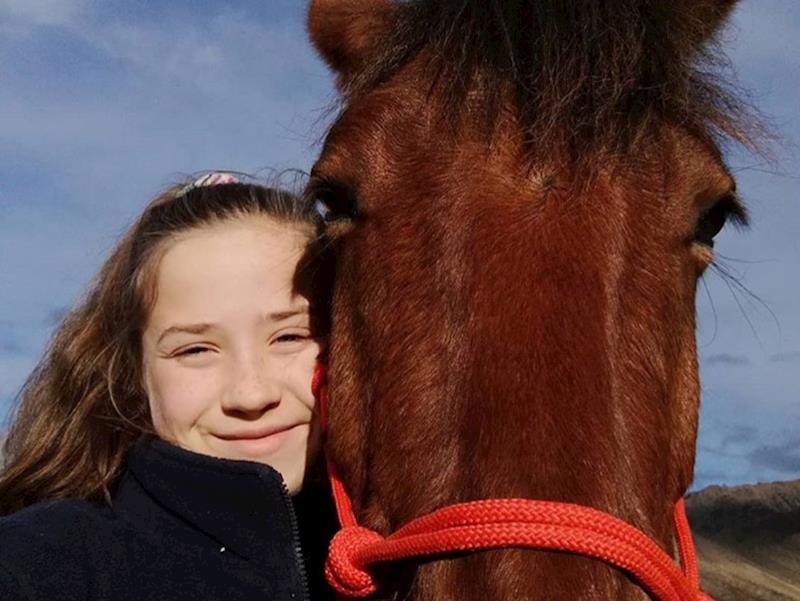
Eliza-Jayne Coetzee was 13 when she fell from “one of her beloved horses”, Boxer, who had bolted when she climbed on him.
In a recently released finding, Coroner Heather McKenzie said the Omarama teen died from blunt-force trauma, causing a basal skull fracture and significant injury to the brain. She also suffered resuscitation-related injuries but those did not contribute to her death in 2019.
Coetzee had been around horses from a young age and had been riding almost every day in the three years before her death. A Givealitte page created at the time by a family friend said the teen died after “falling from one of her beloved horses” and that there was “some comfort in knowing that Eliza passed away doing something that she loved”.
Her mother Tania Coetzee told NZME this week that losing her daughter was the hardest thing she had ever experienced.

“Ask anyone in town where she spent only four of her 13 and a-half years.”
The coroner described how Tania had bought Coetzee her "project horse" called Boxer in August 2019.
She was not allowed to ride Boxer until fully trained; however, she could groom him, put on a saddle and bridle and lunge him. Lungeing a horse is when the animal is led in a large circle by a trainer holding a long lead rein.
At about 5pm on October 4, 2019, Coetzee was doing groundwork with the horse to prepare him to be ridden.
A family friend, Marju Laukkanen, was with the teen at the time and told her not to mount the animal, but she did not listen and the horse bolted across a paddock towards a fence.
Coetzee fell from the horse and on to the side of the fence before landing on her back on the ground. Members of the public and emergency services attempted to save her life, but she died at the scene.
CPR was performed on Coetzee for almost an hour with no signs of life or shockable heart rhythm being detected before a registered nurse arrived on the scene.
The nurse was advised over the phone to stop CPR and perform “open finger thoracostomies” to decompress Coetzee’s chest.
However, she was unfamiliar with the procedure, and misheard instructions over the phone due to windy conditions at the site.
This meant the procedure was performed incorrectly with the limited equipment available and caused injuries including puncture wounds to Coetzee’s right ventricle.
Coroner McKenzie referred to the report of St John medical director Dr Tony Smith who said although the injury was “very regrettable” it occurred in unusual circumstances and during lifesaving attempts.
Smith said the mortality rate for a person who goes into cardiac arrest before first responders can reach the scene following blunt force trauma was “almost 100 percent”. That meant Coetzee had a 100 percent chance of dying when the nurse arrived on the scene and she could have only survived if immediate action was taken.
Smith said there was an important lesson to be learnt from the incident by doctors and nurses attending emergencies in out-of-hospital settings.
“In my opinion that lesson is that decompressing the chest in the setting of a presumed tension pneumothorax is an invasive procedure with the possibility of saving a life, but conversely it also carries the risk of causing harm,” Smith said.
He reiterated decompression of the chest should “usually” be performed by medical personnel trained to do so and only when the appropriate equipment is available.
However, Smith concluded that the injury to the teen’s right ventricle did not cause or contribute to her death, because at that point “her death sadly was inevitable”.
Coroner McKenzie endorsed Smith’s recommendations about lessons to be learnt for medical staff attending emergencies in public settings.
The teen’s mother said she hopes her daughter is now resting in peace.
“The events that led to her death were complicated and tragic and many people will have regrets about what they did and didn’t do on that day, including me.
“We can only trust that she is resting in peace with beautiful horses to train all around her.”
- By Hazel Osborne
- Open Justice multimedia journalist, Wellington







